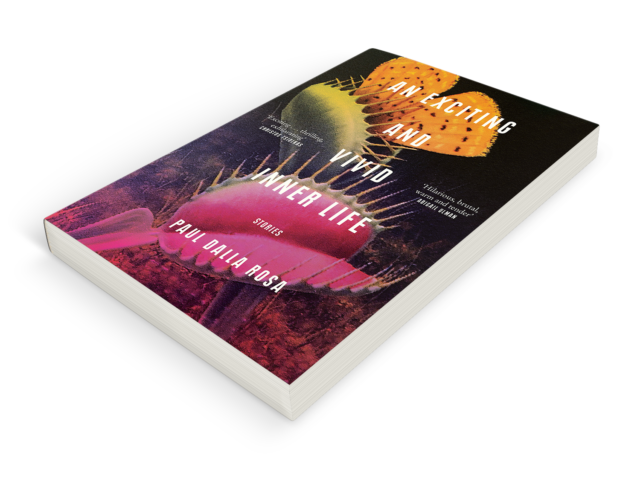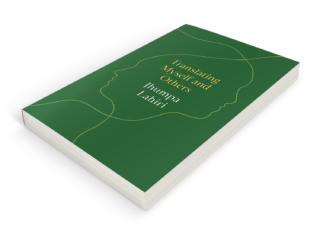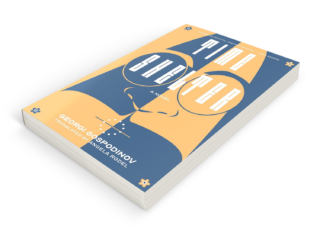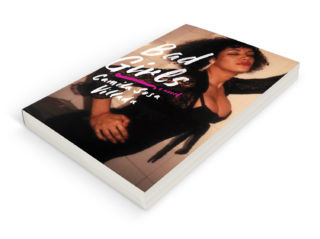Book Review Online
The Other Side of Faggotry
On Paul Dalla Rosa’s story collection, An Exciting and Vivid Inner Life.
By Bobuq Sayed

An Exciting and Vivid Inner Life
Paul Dalla Rosa
Allen & Unwin, AUD 30
There is something so refreshing about witnessing an author eviscerate the narcissism of modern gay life: the hedonism masquerading as self-care, its vapid aspirationalism, the camera lens that facilitates sex at the same time as it precludes intimacy. It is a novelty to behold because much contemporary gay fiction still hasn’t shed the expectation to perform respectability politics, by which I mean gushy love stories or painfully earnest paeans to coming out.
Perhaps there is still a need for gay trauma narratives in fiction. Real-world analogues for these catastrophic stories happen every day and certainly the market for them is going strong. The critic Parul Sehgal’s essay on the trauma plot cites A Little Life by Hanya Yanagihara as an example of a tendency in contemporary fiction to use unbearable suffering as a shortcut to narrative coherence. Storytelling that prominently features the pain and abuse of gay people has a broad appeal, often for those whose stereotypes of gay life it confirms.
And yet, in the debut short story collection of Australian author Paul Dalla Rosa, An Exciting and Vivid Inner Life, the author insists on articulating another perspective on the psychic depravity of gay people, one that is even more devastating in its ubiquity.
The men in Dalla Rosa’s stories work out as a feature of their personality. They scroll Grindr for attention, make bad decisions to procure party drugs, cross international borders and personal boundaries, and barely scratch the surface of a political reality beyond their own tiresome solipsistic lives. At first glance, it can seem like a showcase of white privilege. How nice to fly from Mallorca to Tel Aviv for Pride without any concern for the Palestinians dispossessed from their land, or the indentured laborers that another story, set in Dubai, peripherally features in scenes located in various lavish hotel bars. By the end of the collection, though, it becomes clear that this racial exclusion is not an oversight at all. This is the point.
An astounding capacity for acerbic characterization undergirds all these stories, which are reminiscent at times of the stories in Bryan Washington’s debut collection, Lot. Readers aren’t exactly meant to like the characters so much as balk at their familiarity. They display the dangers of an unchecked id, of being completely at odds with one’s own place in the world, of a damning ennui at the spoils of adulthood. The fine-tooth comb of the prose nevertheless invites the reader to relate. Whether in rural China or Australia’s Gold Coast, Dalla Rosa’s characters face a stark reality that is here and now, dejected and unsentimental, watching helplessly while the opportunity for something real and meaningful is gradually drained away from the arena of possibility.
The opening story, “The Hard Thing,” is exemplary in many ways of Dalla Rosa’s style and scorching humor. “I could never tell if the sun had set,” the narrator says of their windowless room on the thirtieth floor of an expensive apartment complex on Sheikh Zayed Road. “This was during Ramadan, so no one could serve drinks until it had. Every night I’d call the front desk and ask them: is it time, is it time?”
The protagonist of this story works as a proofreader for a mining company, only socializes with other expats, and parades his corporate Amex card to impress and inebriate men in the Navy with ambiguous sexualities. He cheats on the man he loves, gets kicked out of bars, vomits in cabs, and suffers some but not many of the consequences of his actions. This is the first but not the last instance where a young white male narrator exhibits a fascinating dramatic irony about their own power despite purporting to have six housemates and no career prospects. The story offers a spectacle of whiteness abroad and features none of the committed cultural exchange that is present in the fiction of, say, Garth Greenwell or even James Baldwin. The main character doesn’t know any Arabs in Dubai, is aware of this, and doesn’t really care to rectify it at all. What could be more emblematic of a modern gay white narcissism than that?
Too often, short fiction is described in the context of all the things that it allegedly cannot achieve: the all-encompassing scale of atmosphere, the subplots, the complex narrative arcs. What is remarkable about this collection is that Dalla Rosa harnesses the unique strengths of the short story form to achieve a myriad portrait of this particular crossroads in contemporary history, especially as it impinges on young gay people. It is hard to imagine a novel being able to accomplish the same kaleidoscopic effect, though Bernadine Evaristo’s Girl, Woman, Other comes to mind.
There is no singular condition at which Dalla Rosa takes aim and yet an alienation with labor is one that appears consistently. In “Charlie in High Definition,” Emma and Dan, an educated couple in New York City cannot afford to live alone together and must recruit a third housemate to make rent. Their cat, Charlie, routinely aggresses the newcomer whenever the couple leave home, forcing them to coordinate an increasingly impossible plan to ensure the new housemate is never left alone with the animal. Emma soon forfeits her social responsibilities, including her partner Dan’s family event in Arizona, as all aspects of her life begin to coalesce around the cat. The tyranny of their financial circumstances narrows the window to think of anything else. Despite being an artist whose digital and mixed media installations have “been shown in New York, Montreal, Berlin and, at one point, Seoul” she contents herself with barely scraping by on an adjunct salary from an unnamed university that requires a commute of four hours each day, time for which she is not paid. How pathetic the material reality of the working artist is here shown to be, the “Empire State of Mind” pockmarked by neuroses and kibble.
The story “Short Stack” displays a different perspective on labor alienation. Sam washes dishes at the Pancake Saloon. He likes it there: “He was happiest eating them [a stack of pancakes] at the Pancake Saloon with his friends who were not his friends but his co-workers.” Sam labors in vain to rescue himself from credit card debt and from medical debt caused by a workplace accident. He tries to add hours as a server, he attempts to cam online to raise money from tipping voyeurs, and, instead, he ends up trapped by the false promises of class mobility and a delusional pattern of comparing himself to the cam star he gets off on. Sam is increasingly crushed by his debt and yet it is not this trauma that structures the story. As with many of the characters in this collection, Sam is striving for something different, something more and, again and again, he is unable to get it. Dalla Rosa’s narration textures the story with the lonely ambience of a simple life locked into free-fall spiral.
Elsewhere, in “The Fame,” a nod to the album that skyrocketed Lady Gaga to superstardom back in 2008, a young gay man embarks on his own ascent into artistic notoriety, which he sees as all but inevitable, drunk on the allure of TMZ and E! Entertainment. This future and self-actualized version of the character looms large in the story, mediated by the ever-present camera phone and the farce of a faceless Grindr profile who seduces him with a record deal. “I did things like that then,” he muses. “Take the internet at its word.” This is a story and collection in conversation with the cultural hegemony of social media and hookup apps: many of these characters do not remember a time before the internet, and it shows. Successful influencers get clout but Dalla Rosa is more concerned with those who don’t gain the influence they seek, who never break into the industry, who flail against their own terrifying mediocrity. If an early promise of the internet was to democratize the world, providing access to those previously left out, here the naïveté of such dreams appear in high definition.
A similar reckoning takes place in “I Feel It” when Nathan meets a group of muscular American men at a McDonald’s. The four men invite Nathan into a role-play scenario as the group’s submissive “little bitch.” Though this sexually charged opportunity offers the kind of novelty that Nathan craves, he doesn’t take it. He leaves. Either he is too high, too enmeshed in his own delusions of grandeur, or simply not kinky enough. Nathan, who is described in reference to his friends as “looking a lot like Jarred who looked a lot like David who looked a lot like Mitch,” embarks on a solo walk as a means of differentiating himself from the others, who are happy simply lounging in the heat. And yet, though he claims to want something more, something new, he falters when it is on offer: in the end, he is no different from his friends who spend their days watching reality TV. This is one of the stories where the whiteness of the characters becomes most apparent as it pertains to the countries they frequent and borders they cross. It is presumed from their swift passage into Israel that none of these gay men were harassed or detained at the border for having Muslim-sounding names or, worse, actually being Palestinian. Their white gayness is fungible. They are there to have fun, maybe suck some dick, and not worry about land theft or colonialism. These men are not robust. None of them have exciting or vivid inner lives.
Dalla Rosa’s collection is all about people craving what they don’t have. They go in search of something and, most of the time, what they want is out of reach or not what they wanted at all. In a way, this is the end point of Marx’s commodity fetishism, where glossy advertisements are mistaken for genuine desire and people size up one another based on their perceived usefulness. These are the psychic contradictions An Exciting and Vivid Inner Life wrestles with: a suite of characters who are both exploited by unfair labor practices and complicit in their violence on others. Young people who yearn for celebrity, but then crawl out of a tiny bathroom window to sit on the roof and wait for the camera crew to leave.


